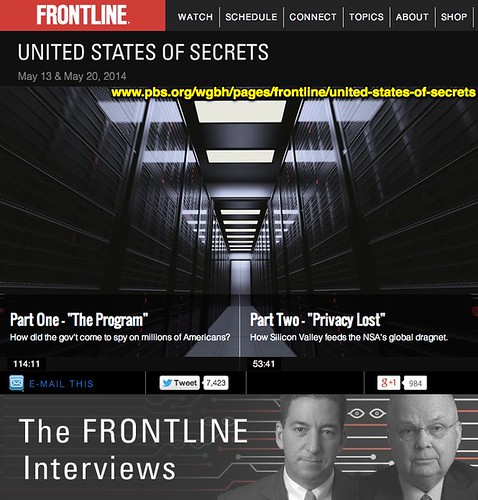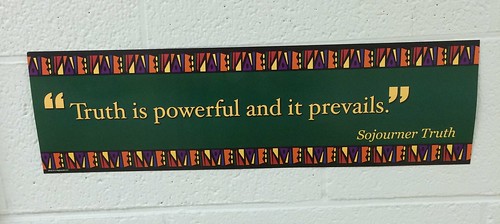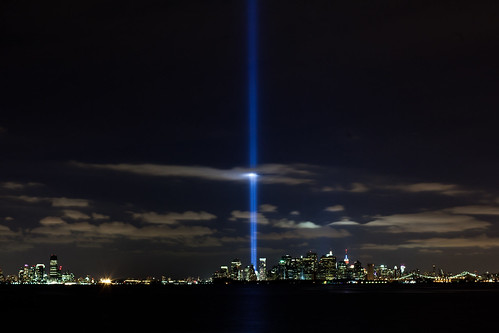I have a personal challenge for you. Take two hours in the next few weeks, and watch both Part 1 (“The Program”) and Part 2 (“Privacy Lost”) of the PBS Frontline special, “United States of Secrets.” The best option is to watch these programs with at least one other person with whom you can discuss the issues they raise. You can watch them online with a web browser or on AppleTV (as I did) within the PBS station app. You won’t regret it. The Twitter hashtag for the series is #USofSecrets.
My 4th grade daughter was in the room tonight (playing Minecraft) while I watched part 2 of the series. When I put her to bed she asked me, “Is all of that true, Daddy?” I reminded her that we never want to believe something just because we hear it on television or read it on the Internet. We want to check different sources, analyze who is telling us different messages, and be critical thinkers about information and ideas. That said, I told her I do think much of what was said in these documentaries IS true. Our government, along with the main technology companies today, is tracking each and every move we make online. Some of this we’ve known about, but much of it we haven’t.
Many people perceive the United States to be a free and open society, governed by accountable officials who are ultimately subject to the “will of the people.” In the closing line of the documentary series, Barton Gellman makes an important statement. If we don’t know what the government is doing, we can’t hold the government accountable.
Here are some questions raised by “United States of Secrets” well worth discussing with members of your family and perhaps, students who you teach. No, you’re unlikely to find these EXACT questions in the Common Core State Standards. Critical thinking, however, is not only an essential part of CCSS but it’s a fundamental building block of our representative democracy. That, as you will recall from school, is the form of government we HAD when the United States was founded, and hopefully can become our form of government again in the future. If you don’t reside in the United States, I’m willing to bet you’ll also find the issues raised in this documentary extremely important as well as alarming.
Question 1: Do you know what a NSL (National Security Letter) is? Do you think they are constitutional or not?
Question 2: What would you have done if you were Nicholas Merrill and received a NSL? Did he act as a courageous hero, defending the United States Constitution, or was he wrong to question federal law enforcement / homeland security officials?
Question 3: What do you think of Edward Snowden? If Snowden had not disclosed so many classified secrets to members of the media, would we be in a better or a worse place as citizens of the United States or as citizens of other countries today?
Most of these questions don’t have black and white answers. That is why we need to ask them and discuss them. We live in a world filled with grey, but also a world filled with shadows. We have always had state secrets and classified documents in the United States, but we have not previously had a security structure so comprehensive AND so secret that its potential to be abused exceeds our worst nightmares. Edward Snowden’s disclosures are terrifying because they confirm the existence of a security state in the United States today which is “Kafkaesque:”
Kafka’s writing has inspired the term “Kafkaesque”, used to describe concepts and situations reminiscent of his work, particularly Der Process and “Die Verwandlung”. Examples include instances in which bureaucracies overpower people, often in a surreal, nightmarish milieu which evokes feelings of senselessness, disorientation, and helplessness. Characters in a Kafkaesque setting often lack a clear course of action to escape the situation. Kafkaesque elements often appear in existential works, but the term has transcended the literary realm to apply to real-life occurrences and situations that are incomprehensibly complex, bizarre, or illogical.
I do not have prescriptions to share in this post of a clear way forward from the alarming security state precipice upon which we sit today in the United States. I do think, however, PBS Frontline has performed a great service to our country in producing this two-part documentary and helping open our eyes even wider to the hidden surveillance all around us. I’m reminded of the Argentine “Dirty War” (La Guerra Sucia) and the ways conservative forces in many parts of the world have overreached their “legitimate” authority to provide security and defend their nation against perceived and alleged threats, both internal and external. Our need for enlightened, moral leaders is as great today as it ever has been – everywhere. The potential to use the all-watching eyes of our security state for ill purposes instead of good is exceedingly high.
In part 2 of the documentary, we learn the same year Nicholas Merrill received his National Security Letter (NSL), 56,000 other NSLs were sent to other people in other companies. Each NSL had the same gag order included. The recipient was prohibited from discussing the contents or even revealing the existence of the letter to ANYONE else. Nicholas Merrill was the first person in the United States to ever publicly challenge the constitutionality of a NSL. When a US appeals court ruled it unconstitutional, the federal office which had issued it withdrew it, thereby preventing the Supreme Court from hearing and ruling on the case. NSLs continue to be issued today, unabated.
A society in which the regular distribution of National Security Letters has become “normalized” is a terrifying prospect.
Welcome to the United States in 2014.
Now go watch this documentary.
I hope these words from Sojourner Truth, which I photographed on a poster at my wife’s elementary school today, remain true in the 21st century.
Thank you, PBS Frontline, for the documentary, “United States of Secrets,” which helps expose a bit of the shadows around us to the light of public scrutiny.
Technorati Tags: nsa, pbs, frontline, USofSecrets, security
If you enjoyed this post and found it useful, subscribe to Wes’ free newsletter. Check out Wes’ video tutorial library, “Playing with Media.” Information about more ways to learn with Dr. Wesley Fryer are available on wesfryer.com/after.
On this day..
- EdCampOKSDE Coming Tuesday July 7, 2015 to Oklahoma City – 2015
- iPad Media Camp July 8-10 at UFM Community Learning Center in Manhattan, Kansas – 2014
- Educational Technology Podcasts from Kansas City: Storytelling and Visual Literacy Activity Ideas – 2012
- 5 generations of babies: Rocking the same cradle – 2010
- Monetizing Blogging via Amazon’s Kindle – 2009
- Is the Obama Administration Dooming Us to HyperInflation? – 2009
- National Cyber Summit on 21st Century Skills – 2009
- Rather than innovate, Microsoft may litigate against open source – 2007
- Flux – 2006






Comments
One response to “Why Edward Snowden’s Disclosures Are Terrifying”
[…] Moving at the Speed of Creativity | Why Edward Snowden’s Disclosures Are Terrifying […]